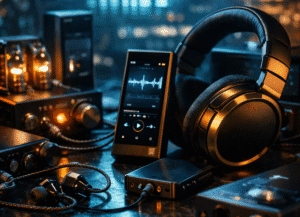CYBERSECURITY | Safety, security in the digital age
Listing the best practices to combat possible cyber threats .
Cyberthreats loom over everyone as the ease and convenience promised by technology is available to all. Organizations and individuals are constantly at risk but despite such, there is more than one way to keep one safe against possible cyber threats. Leading tech expert Microsoft shares the best practices for organizations and individuals that can help combat possible cyber threats.
IN ORGANIZATIONS
Prevention
Prevention is better than cure – finding a problem at the onset allows one to address it quickly.
For organizations who already hold a large amount of data and plan to acquire more in the future, incorporating preventive controls early on is key. Not only will doing so decrease the cost of attacks for cybercriminals but this will also prevent cheap and effective cyberattack techniques. While a cybercriminal seeks to gain by taking information, their cheap means of doing so costs them more in terms of money and time lost.
Cloud backup
Cloud Backup is the process of sending an extra copy of data to a public cloud, a service provider or another cloud backup. While this action helps secure the private information owned by an organization, assets intended for building internal servers and other projects will also be saved. This simple investment allows the organization to save so much money in the long run.
Access control
Certain files must only be accessed by certain people. By implementing network segmentation and limiting the people who can access top-secret information, the chances of leaked information will be minimized. Exerting caution when granting application permission is a must.
Cybersecurity education
The lack of knowledge on cybersecurity contributes to the increase in the number of breaches and attacks on a company’s digital system. By enlightening employees, from key executives to the day to day staff, about safe cybersecurity practices repeating the same electronic mistakes already done in the past can be avoidable. Consistent insightful discussions and regular evaluation of the team’s understanding of safe cybersecurity practices are just two of the possible concrete steps to follow.
Detection & response
When preventive security measures are not in place and the organization is attacked, detecting an attack and immediate response is vital. To do so, companies must leverage cloud technology to limit attackers’ access to data and help security operations better respond to attacks.
FOR INDIVIDUALS
People who spend so much time on their mobile phones on a daily basis are just as prone to the danger of cyberattacks as big organizations holding large amount of data. While intensive steps in preventing cyberattacks may not be necessary, there are a couple of tips one must still take. No one wants to, one day, all of a sudden, have their personal information shared to the public without their consent.
Cyber hygiene
One of the first things to do after acquiring a new gadget is to make sure that it is protected with an anti-virus software. This will give an additional barrier of protection that can help delay or totally prevent cyberattacks. In addition to this solution, other applications, software and operating systems should constantly be updated. A lot of times updates are done specifically to continue building barriers against cyber criminals.
Genuine software
The temptation to download and pirate files and software is real. It usually is a good bargain after all Despite that, individuals must understand that cyber attackers can be creative. They always find new ways to get through to an individual. In the long run, a cheap solution can cost an individual so much more when exposed. Owning bootlegged software may subject a person to monetary loss, loss of data and information. It is imperative to stay cautious and choose safe systems from trusted sources.
Password management
A simple task often overlooked is password management. While choosing a strong password might seem enough, it would be best to take the extra step of constantly changing this. Constantly changing one’s password, especially when several devices are being used at the same time, increases the security and prevents others from easily hacking into one’s accounts. This can be such a tedious task but that quick and easy change could spell less chances of getting stressed due to lost data.
Backup personal files
One should never forget to keep a backup of their files. This step applies to individuals as much as it applies to big organizations. This will ensure one’s files are secure and will serve as a precaution from being inconvenienced when one loses personal, confidential documents.
Stay vigilant
Everyone enjoys free things. While free WIFI access is great for people on the go, network connections that cannot be trusted can expose an individual. It would be so much easier to take a glimpse of one’s personal information should they connect to an unfamiliar network. If connecting to free public WIFI is unavoidable, it is important to be discriminating when sharing classified materials or visiting high-risk websites or apps like those for banks, as sensitive information contained within can be easily accessed by another individual with the proper tech know-how who is also connected to the same public WIFI.
These systems may be dull right now, but one must think about the long term benefits. A recent study from Microsoft and IDC Asia Pacific, Understanding Consumer Trust in Digital Services in Asia Pacific, revealed that only less than half (44%) of consumers in the Philippines believed that their personal data will be treated in a trustworthy manner by organizations offering digital services. Everyone must remember to take the extra cautionary steps for security.



